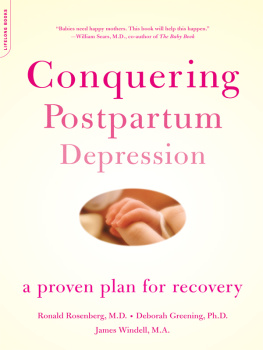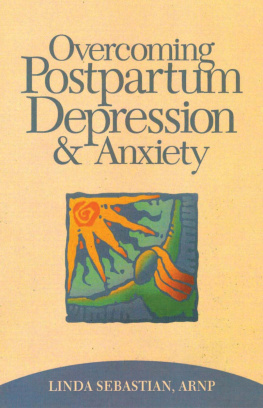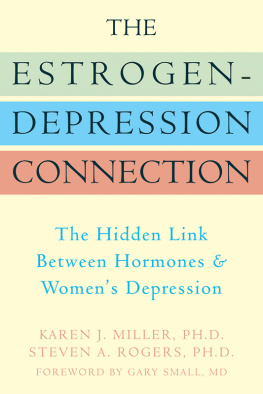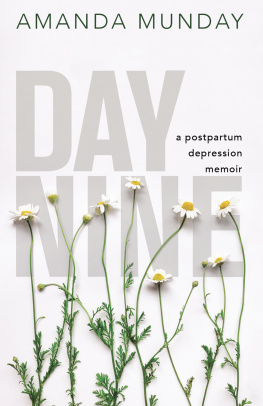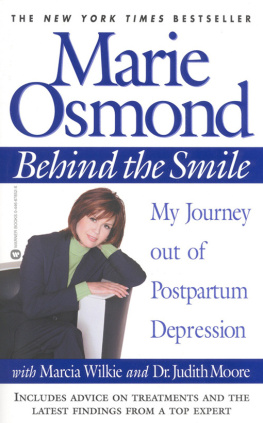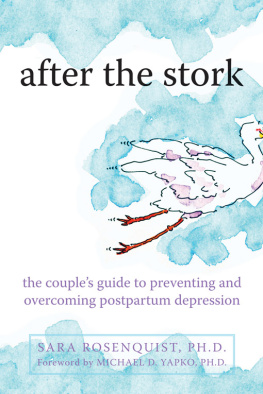ROCK-A-BY BABY
PERSPECTIVES ON GENDER
Series Editor:
Myra Marx Feree, University of Connecticut
Pleasure, Power, and Technology: Some Tales of Gender, Engineering, and the Cooperative Workplace
Sally Hacker
Black Feminist Thought: Knowledge, Consciousness, and the Politics of Empowerment Patricia
Hill Collins
Understanding Sexual Violence: A Study of Convicted Rapists
Diana Scully
Maid in the U.S.A.
Mary Romero
Feminisms and the Women's Movement: Dynamics of Change in Social Movement Ideology and Activism
Barbara Ryan
Black Women and White Women in the Professions: Analysis of Job Segregation by Race and Gender, 19601980
Natalie J. Sokoloff
Gender Consciousness and Politics
Sue Tolleson Rinehart
Mothering:
Ideology, Experience, and Agency
Evelyn Nakano Glenn, Grace Chang, and Linda Rennie Forcey (editors)
For Richer, For Poorer: Mothers Confront Divorce
Demie Kurz
First published 1996 by Routledge
Published 2016 by Routledge
2 Park Square. Milton Park, Abingdon. Oxon 0X14 4RN
711 Third Avenue, New York. NY 10017. USA
Routledge is an imprint of the Taylor & Francis Group, an informa business
Routledge 1996
All rights reserved. No part of this book may be reprinted or reproduced or utilised in any form or by any electronic, mechanical, or other means, now known or hereafter invented, including photocopying and recording, or in any information storage or retrieval system, without permission in writing from the publishers.
Notices
Practitioners and researchers must always rely on their own experience and knowledge in evaluating and using any information, methods, compounds, or experiments described herein. In using such information or methods they should be mindful of their own safety and the safety of others, including parties for whom they have a professional responsibility.
Product or corporate names may be trademarks or registered trademarks, and are used only for identification and explanation without intent to infringe.
Permissions:
Excerpt from Eat for Two by Natalie Merchant, 1 989 Christian Buria
Music.
The Low Road from Circles on the Water by Marge Piercy, 1982.
Reprinted by permission of Alfred A. Knopf, Inc.
Emotions by Jeanette Honikman is printed courtesy of the author.
Library of Congress Cataloging-in-Publication Data
Taylor, Verta A.
Rock-a-by Baby : feminism, self-help, and postpartum depression / Verta Taylor.
p. cm.
Includes bibliographical references.
ISBN-13: 978-0-415-91291-4 (hbk)ISBN-13: 978-0-415-91292-1 (pbk)
1. WomenSocial networksUnited States. 2. MothersSocial networksUnited States. 3. MothersMental healthUnited States. 4. Postpartum depressionUnited States. 5. Self-help groupsUnited States. 6. FeminismUnited States. I. Title.
| HQ1421.T39 1996 | 96-19519 |
| 306.8743dc20 | CIP |
Design and typesetting by Leslie Sharpe with Hermann Feldhaus at Cave.
I N RESEARCHING this topic and writing this book, many people have contributed to my work. First and foremost, I thank those who have allowed me to interview them: the women who shared their experiences of postpartum illness; the physicians, nurses, social workers, psychologists, and human service professionals who shared their frames of reference; and the members of Depression After Delivery (D.A.D.) and Postpartum Support International (PSI). I am especially grateful to Nancy Berchtold, founder of D.A.D, and Jane Honikman, founder of PSI, for opening their organizational and personal files to me. Without their guidance, insights, and friendship, and their deep personal commitment to the issue of post-partum illness, I could not have written this book. I also thank Karen Mumford, founder of the Ohio chapter of D.A.D., and Helen Cain Jackson, Chief of the Office of Prevention in the Ohio Department of Mental Health, for allowing me to attend the meetings of Ohios Postpartum Depression Task Force and for sharing their memories and insights. For her courage in speaking out about her experiences, for her insistence on finding answers that might help other women, and for keeping the faith in the long and arduous struggle for womens equality, I dedicate this book to Dagmar Celeste.
The research was supported financially for a period of nearly ten years by three separate awards from the Ohio Department of Mental Health. I thank former director Pamela Hyde and especially Dee Roth, director of Program Evaluation and Research, for their steadfast commitment to and enthusiasm for this project. As I have worked with Dee over the past twenty years, I have developed tremendous respect for her technical skills, research ethics, administrative capabilities, and ability to survive the perilous shifting political landscape in Ohio. Further, I am grateful to the Ohio State University for providing various funds for the research, including a Seed Grant from the Office of Research, a sabbatical during which I conducted most of the fieldwork on the self-help movement, several grants from the College of Social and Behavioral Sciences, funding for two research assistants from the College of Humanities, and several awards directly from the Department of Sociology.
Completing a project of this magnitude would have been impossible without a number of research assistants. I am grateful to Lisa Ransdell, Kelly McCormick, Nancy Essex, Chris Smithies, Melinda Wolfe, and Claire Picone for conducting a portion of the first set of interviews; Phyllis Gorman, Susan Moseley, Sharon Carter, and Susann Rivera for handling administrative tasks on the research project; Stephanie Spears, who assisted with the analysis of the interview data, and Bridget Anderson, who helped with the analysis of the medical and popular sources; Alicia Hurtt, Nicole Raeburn, and Martha Schmidt for transcription assistance; and Nicole Raeburn and Molly Wallace for assisting with the bibliography and appendix.
I am deeply indebted to a number of scholars who read and provided thoughtful comments on the entire manuscript: Joan Huber, Myra Marx Ferree, Nicole Raeburn, Leila J. Rupp, Suzanne Staggenborg, Kate Weigand, Nancy Whittier, and Marieke Van Willigen. In addition I am grateful to those who read parts of the manuscript: Linda Blum, Florence Bonner, Dagmar Celeste, Kathy Charmaz, Hank Johnston, Michael Kimmel, Bert Klander mans, Judith Lorber, Patricia Yancey Martin, Susan Osborn, Harry Potter, Lisa Ransdell, Laurel Richardson, Catherine Ross, Dee Roth, Michael Schwartz, and Barrie Thorne. I especially thank my editor at Routledge, Jayne Fargnoli, for recognizing the possibilities of this project and providing the impetus, encouragement, friendship, and enthusiasm necessary to complete the book. Everyone I have worked with at Routledge has been extraordinarily helpful and competent. I am grateful to Kim Herald and Karen Deaver for overseeing the manuscript through editing and production, and Jay Hodges for his determination to begin marketing the book before I had even finished writing the conclusion. Finally, my copy editor, Kathleen Silloway, facilitated and was a member of a postpartum support group in New York City. Her astute editing has made it more likely that those affected by postpartum illness will read my book.


